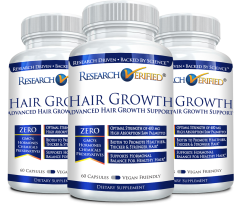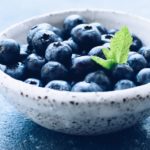Beyond changing color, you are likely to experience coarse hair with age. Whether you are embracing your silver locks or struggling to get your head around the idea of going gray with age, there are ways that you can improve the health and quality of your hair as you grow older. This article will tell you more about coarse gray hair and how you can naturally soften it. By the end of this guide, you will have a better idea of how to keep your hair looking and feeling healthy, even as your natural color begins to fade.
Why Does Gray Hair Become Coarse?
Before we dive into our top recommendations on how to soften coarse gray hair naturally, let’s take a quick look at what causes gray hair to become coarse in the first place. Below, we list the most common reasons that gray hair is susceptible to becoming coarse.
- The natural hair growth cycle changes with age, impacting your hair’s ability to absorb and retain moisture to keep it smooth and healthy (1).
- Many individuals turn to coloring and bleaching to reduce the prominence of gray hair. Hair treatments, like these, can cause the hair to become coarse, contributing to dull, frizzy, and rough hair in time (2).
- Frequent combing of gray hair can lead to fractures in the hair shaft, causing the hair to appear rough.
- Changing hair structure with age and fragility in the follicles can make gray hair more susceptible to damage that reduces smoothness (3).
- Oxidative stress contributes to rapid hair deterioration and can contribute to coarse gray hair (4).
- Melanocytes, which give hair its natural and radiant color, deteriorate with age (5). This causes the hair to turn gray and can also lead to damage and rough hair as melanocytes affect the body’s production of keratin-producing cells.
Natural Ways to Soften Coarse Gray Hair
With a better understanding of the reasons gray hair becomes coarse, we can now elaborate on some of the most effective natural ways to soften coarse gray hair. Below, we explore some fool-proof methods to keep your hair looking and feeling healthier than ever.
Reduce Your Use of Chemicals
One of the most common reasons people suffer from coarse hair is because they make use of products that contain high concentrations of chemicals. In most cases, these chemicals are harmful and have the opposite effect of their intention. Chemicals like sodium lauryl sulfate, for example, dry out the hair while parabens can contribute to hormonal changes causing hair loss, irritation and damage. Many hair products use these ingredients as affordable cleansing agents, so be sure to read product packaging carefully and avoid these chemicals at all costs. Furthermore, we recommend that you avoid coloring or bleaching your hair. According to authoritative sources, coloring your hair breaks down natural hair pigment, weakens the hair follicles, and leaves the hair dry and thin (6). For these reasons, you should search for natural ways to color your hair to promote healthy and soft locks.
Nourish from the Inside

Research Verified® Hair Growth is one example of a haircare product that benefits the hair rather than damages it. This specific product contains an all-natural formula of beneficial vitamins and minerals, such as Vitamin A and Ginkgo Biloba. Both ingredients support hair health, reduce the impact of oxidative stress that causes coarse hair, and contribute to softer locks. Furthermore, this particular product is free from parabens, additives, preservatives, and other dangerous chemicals that you will find in poor-quality hair care products.
Avoid Heating Tools
Heating tools damage the hair as prolonged exposure to high heat dries out the hair, causes breakages, contributes to split ends, and results in a rough hair texture. Therefore, avoiding heating tools is a simple and natural way to soften coarse gray hair. You can use heating tools sparingly, however, we strongly advise turning to natural ways to straighten your hair instead (7). This can keep your hair healthy for longer and reduce the prominence of coarse gray hair.
Choose a Healthy Hairstyle
Believe it or not, your hairstyle can affect the health of your hair. Some hairstyles pull on hair, contributing to fall out and increasing the appearance of coarse hair. Other hairstyles protect hair, promoting greater volume and keeping your hair smoother for longer (8). You should know the difference, and try your best to follow guides on the healthiest hairstyles to soften gray coarse hair naturally.
Keep Your Scalp Clean and Oiled
Cleaning your hair can remove harmful toxins and protect your hair follicles from the impact of oxidative stress and environmental stressors. This may seem like a simple tip, and it is, but it is also often overlooked. There are dos and don’ts when it comes to cleaning your hair, and you can use the following resource as a guide to cleaning your hair properly (9). We also recommend oiling your hair every so often as the oil helps your hair retain moisture. Oils support hair health with essential nutrients, and you should include oil in your DIY hair care product or hair care routine to protect the hair and promote smoothness.
Support Your Health in All Areas of Life
Besides introducing new natural hair care strategies, you should support your hair health by eating a healthy diet and exercising regularly. Many foods contain important vitamins and minerals that strengthen the hair (10). Furthermore, exercise can stimulate hair growth by increasing circulation for greater nutrient distribution to the hair follicles (11). A healthy diet and regular exercise can reduce the prominence of coarse gray hair, helping you keep your locks looking and feeling softer.
To soften coarse gray hair, you should reduce your use of toxic chemicals, select the right hair care products, avoid heating tools, take advantage of healthier hairstyles, clean your scalp properly and oil frequently, and live a more healthy and balanced lifestyle.



